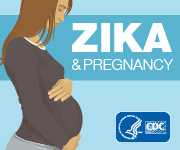Trouble Getting Pregnant

Infertility Infertility means not being able to get pregnant after one year of trying. Or, six months, if a woman is 35 years of age or older. Women who can get pregnant but are unable to stay pregnant may also be infertile.
Assisted Reproductive Technology (ART): Learn about infertility rates and success rates for ART, and find links to more information.
Bleeding Disorders: Bleeding and clotting disorders can cause serious problems for women because of the relationship of these disorders to reproductive issues. These problems include heavy menstrual bleeding (termed menorrhagia), bleeding and clotting complications of pregnancy, and recurrent fetal loss.
Genetics: Couples who are having trouble getting pregnant might want to get genetic counseling.
Sexually Transmitted Diseases (STDs): Chlamydia and gonorrhea are the most important preventable causes of infertility. Untreated, up to 40% of women with these infections will develop pelvic inflammatory disease (PID). PID can lead to infertility and potentially fatal tubal (ectopic) pregnancy.
DES: (Diethylstilbestrol): If you think you were exposed to DES, check out CDC’s DES Update to learn more about DES exposure and what you can do about it.
- Page last reviewed: August 25, 2015
- Page last updated: August 25, 2015
- Content source:




 ShareCompartir
ShareCompartir